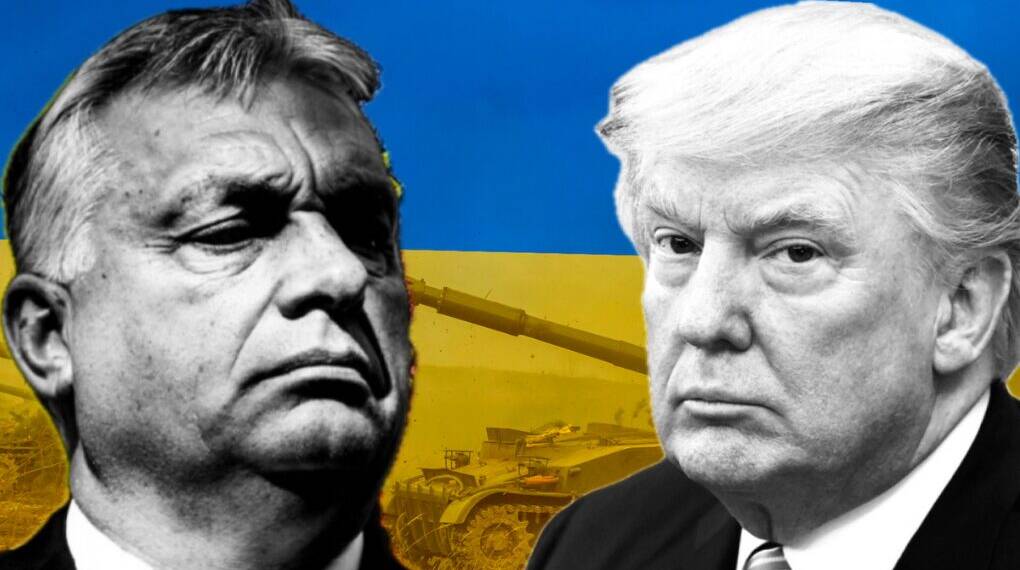Hungarian Prime Minister Viktor Orbán remarked that U.S. President Donald Trump is “very angry” at Ukrainian President Volodymyr Zelenskyy following the reported strike on the Druzhba pipeline — a critical energy artery delivering Russian crude to Central Europe. Ukraine bombed the Unecha oil pumping station in Russia, according to Ukraine’s Unmanned Systems Forces commander Robert Brovdi, also known as Madyar. Oil deliveries from the Druzhba pipeline could be suspended for five days.
Orbán wrote, “Hungary supports Ukraine with electricity and petrol, in return, they bomb pipeline that supply us. Very unfriendly move! We wish President Trump every success in his pursuit of peace,”
The Druzhba Pipeline: A Lifeline Under Fire
The Druzhba (“Friendship”) pipeline, constructed during the Soviet era, is one of the world’s longest crude oil networks. Stretching thousands of kilometers, it continues to channel Russian oil to countries such as Hungary, Slovakia and the Czech Republic, despite intensified sanctions on Moscow. Hungary, in particular, remains highly dependent on this line; Orbán’s government has consistently resisted EU proposals for a blanket embargo on Russian oil, citing the country’s vulnerability and lack of alternatives.
A strike on such an asset, whether accidental or deliberate, carries enormous geopolitical weight. Disruption to Druzhba not only risks fuel shortages in parts of Central Europe but also threatens the delicate balance inside the EU over how far member states are willing to support Kyiv at the expense of their own energy security.
Orbán’s Projection of Trump’s Position
Orbán’s statement regarding Trump’s anger at Zelenskyy introduces an additional layer of intrigue. Officially, Trump has not issued such commentary, and his actual stance on the Druzhba incident remains a matter of speculation. Yet Orbán has long cultivated a political persona tied to Trump’s worldview—skeptical of Brussels, resistant to sanctions policies, and emphasizing “peace negotiations” over military escalation.
By attributing frustration to Trump, Orbán may be framing the pipeline attack as not only a regional problem but as an issue touching spheres of influence in Washington as well. This rhetorical strategy simultaneously reinforces his narrative that Zelenskyy is straining Western patience and that alternative political forces in the United States may share his perspective.
Ukraine, Hungary, and a Wider Battlefield
From Kyiv’s perspective, attacks on infrastructure linked to Russian exports are often justified as attempts to undermine Moscow’s financial machinery. But Budapest sees such actions differently. Hungary has reluctantly supported EU sanctions on Russia in certain domains, yet Orbán has frequently carved out exemptions where energy is concerned. This divergence in priorities has created visible friction between Hungary and Ukraine.
The pipeline episode underscores just how entangled the war has become with energy politics. What is framed in military logic by Ukraine—denying revenue streams to Russia—translates into an economic threat for Hungary. Orbán, therefore, presents himself as a defender of Hungarian households and industries against the collateral costs of the conflict, and his comments about Trump serve to internationalize that critique.
Strategic Implications
If the reported strike on Druzhba is confirmed, the consequences could reverberate in three main ways:
Energy Security – Central European states face renewed pressure to diversify supplies, despite limited alternatives and high costs.
Western Unity – Discord between Ukraine’s goals and the concerns of governments such as Orbán’s could deepen EU divisions.
US Factor – With Orbán invoking Trump, the narrative may seep into U.S. political debates, where opinions already diverge over continued funding and arms shipments to Kyiv.
Orbán’s statement is more than a colorful quote; it is a calculated political message. By emphasizing Trump’s alleged displeasure with Zelenskyy, he binds Hungary’s grievances to broader currents of skepticism about the war effort in Western capitals. Whether or not Trump himself actually shares Orbán’s assessment, the comment shines a light on the difficult convergence of wartime strategy, energy dependence, and shifting political allegiances.








